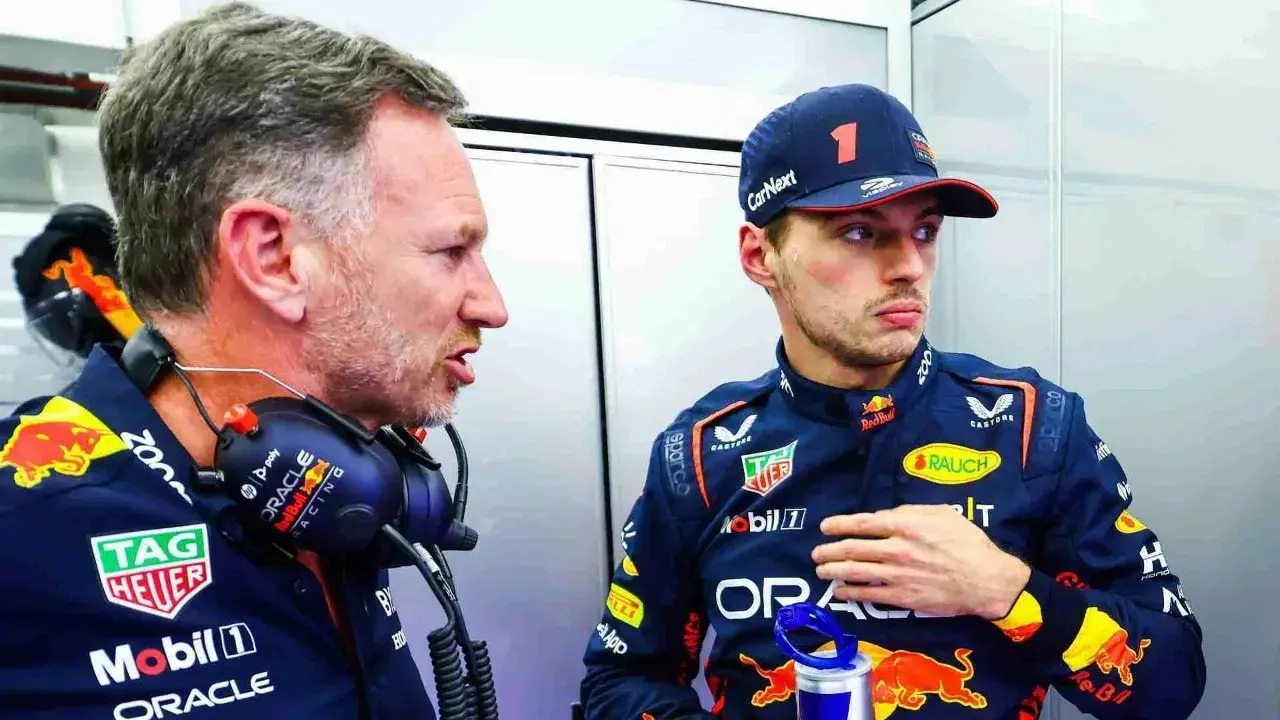In a shocking twist that rocked the Formula 1 world, Christian Horner, the longtime Team Principal of Red Bull Racing, was officially removed from his position following an intense and complex internal power struggle. For years, Horner had been the face of Red Bull’s dominance, guiding the team to multiple Constructors’ and Drivers’ Championships, particularly during the Sebastian Vettel era and again with Max Verstappen. But behind the scenes, tensions were brewing — and they finally boiled over.

So what exactly triggered the downfall of one of F1’s most high-profile leaders? Here’s a breakdown of the key factors that sparked the Red Bull power struggle.
1. Internal Divisions Between Red Bull Racing and Red Bull GmbH
The roots of the conflict lie in the structural complexity of Red Bull’s ownership. Red Bull Racing is not a typical F1 team — it’s a high-performance arm of Red Bull GmbH, the Austrian energy drink giant. After the death of Red Bull co-founder Dietrich Mateschitz in 2022, the company’s leadership was redistributed, and a new generation of executives began asserting influence over the racing division.
While Horner had long operated with considerable autonomy, the new leadership at Red Bull GmbH sought tighter oversight. This shift created friction between Horner and senior figures in Austria, particularly over how the racing team should be managed — financially, politically, and culturally.
2. Clashes with Helmut Marko and the Verstappen Camp
Another key piece of the puzzle is the increasingly strained relationship between Horner and Red Bull advisor Helmut Marko. Marko, a close ally of the late Mateschitz and a kingmaker within the Red Bull driver pipeline, reportedly grew frustrated with Horner’s growing influence and unilateral decision-making.
This tension spilled over into the Verstappen camp. Jos Verstappen, father of three-time World Champion Max Verstappen, has been an outspoken critic of Horner in recent months. Rumors swirled about Horner’s handling of team dynamics, perceived favoritism, and a growing disconnect between the garage and the boardroom. When Verstappen himself was rumored to be considering a shock exit clause — if Marko was removed or sidelined — alarm bells rang loudly across the paddock.
With the team’s biggest asset potentially on edge, Red Bull GmbH had no choice but to reassess its internal leadership model.
3. The Scandal That Escalated Everything
While whispers of political tension had circulated for months, the real breaking point came when Horner was accused of “inappropriate behavior” by a member of the team’s staff. Although an initial internal investigation cleared him, the controversy refused to fade. Reports suggested key stakeholders were unhappy with the investigation’s transparency and objectivity.
Pressure mounted from both inside and outside the organization — including from major sponsors and figures within F1 management. The optics were damaging, and the situation made it clear that Horner had become a lightning rod for division.
In the weeks that followed, leaked messages, internal emails, and growing media scrutiny created a firestorm Red Bull could no longer ignore. What began as a whisper campaign ended in a PR crisis — one that demanded resolution at the highest level.
4. The Final Blow: Loss of Trust from the Board
In the end, it wasn’t a single scandal or personality clash that led to Horner’s sacking — it was a cumulative loss of trust. The Red Bull board, particularly the Austrian leadership, believed Horner had become too polarizing and was damaging the team’s internal cohesion and external image.
Once considered untouchable, Horner’s authority had eroded too far to recover. The final decision came swiftly and decisively. While Red Bull Racing will no doubt continue to compete at the highest level, it now does so without the man who helped build its empire.
A New Era Dawns
As the team enters a new chapter, questions remain: Will Verstappen stay loyal? Will Helmut Marko wield more power? And who will step in to fill the massive leadership vacuum Horner leaves behind?
One thing is clear: the Red Bull power struggle is not just a story of politics and scandal — it’s a turning point for one of the most dominant teams in F1 history.






